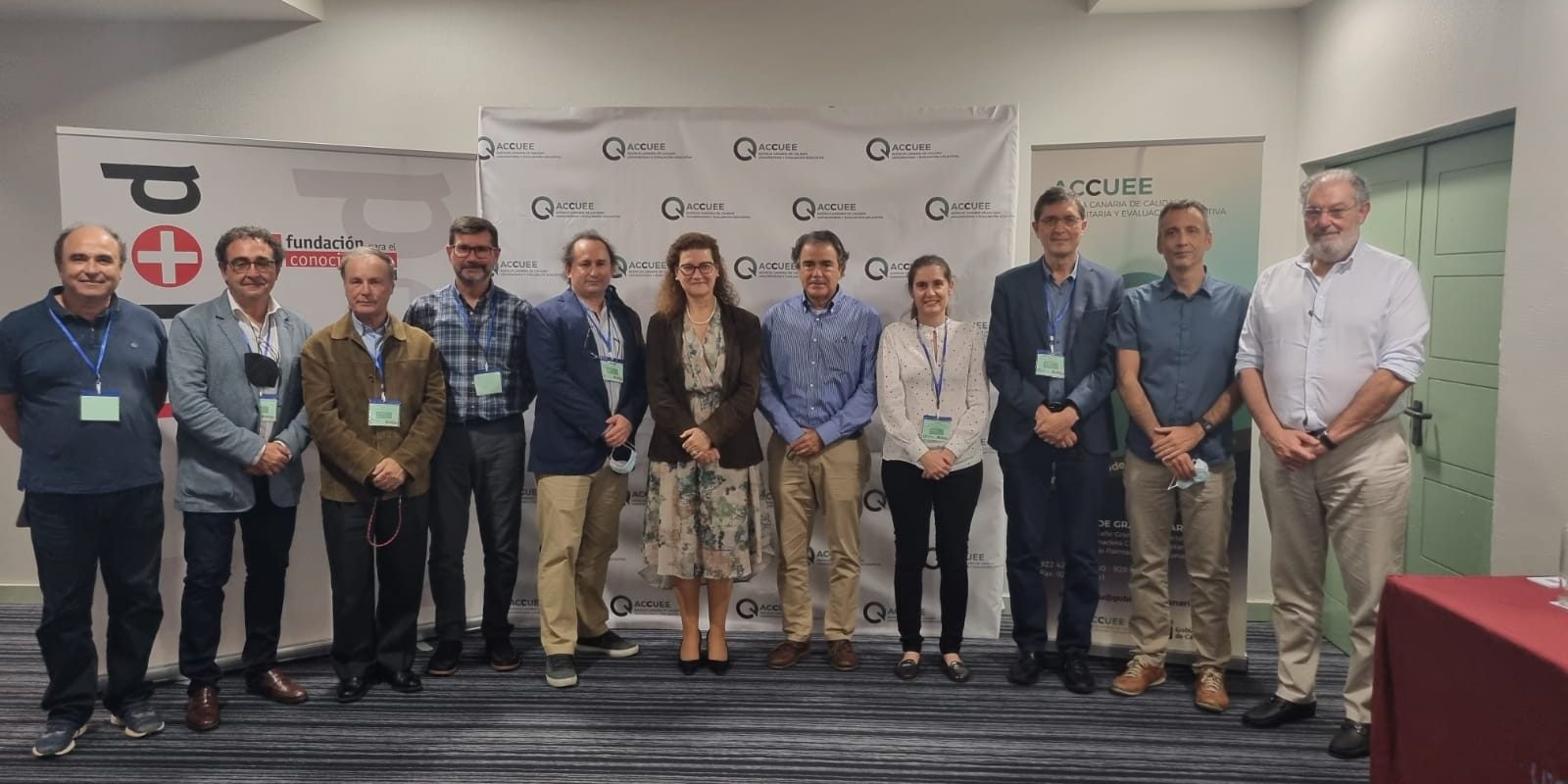On Thursday 11 and Friday 12 November Tenerife hosted the 2021 Conference of the Spanish Network of University Quality Agencies (REACU), jointly organised by the Canarian Agency for University Quality and Educational Evaluation (ACCUEE) and the Foundation for Knowledge madri+d.
Representatives from all the national quality agencies, as well as from the European institutions of reference in this field, such as the European Quality Assurance Register (EQAR) and the European Association of Quality Assurance Agencies (ENQA), attended this meeting, the first of its kind after the pandemic caused by COVID-19. Manuel Pingarrón, Secretary General for Universities, also attended the event telematically, presenting the paper “Present and future of university policies”.
Javier Oliver, Director of the Agència Valenciana d’Avaluació i Prospectiva participated as speaker and moderator of the round table: Challenges of university teaching in the face of the 2030 Agenda, which took place on the afternoon of Thursday 11, between 17:00 and 20:00, with the participation of Óscar Chiva (Coordinator of the Research Group ENDAVANT- UJI), Francisco Amador (Coordinator of the ApS Programme ULL) and Alicia Eva Morales (PhD student in Art and Humanities ULL). Oliver highlights the interest that the round table aroused, the high participation of the attendees in the debate generated and the reflection to which it gave rise, noting the need to realistically integrate the 2030 Agenda in university teaching models, incorporating transformative active methodologies that promote the comprehensive training of students.

The conference also analysed the implementation of micro-credentials in the Spanish university system as a response of higher education institutions to the rapidly changing needs of society and the labour market and the assurance of their quality. Also discussed were joint degrees between several European universities accredited by different quality agencies, which make it necessary to establish university alliances at European level (European Approach) and the quality assurance mechanisms of these joint programmes.
The conference provided an opportunity for evaluation committees, university managers and staff from technical quality units and Spanish and European quality agencies to reflect on the country’s current university policies and their future possibilities in the light of the major transformations that these institutions have undergone in recent decades. Javier Oliver, the director of AVAP, says he is satisfied with the results of the conference, which has recovered its face-to-face character, thus providing common spaces for dialogue and reflection.





